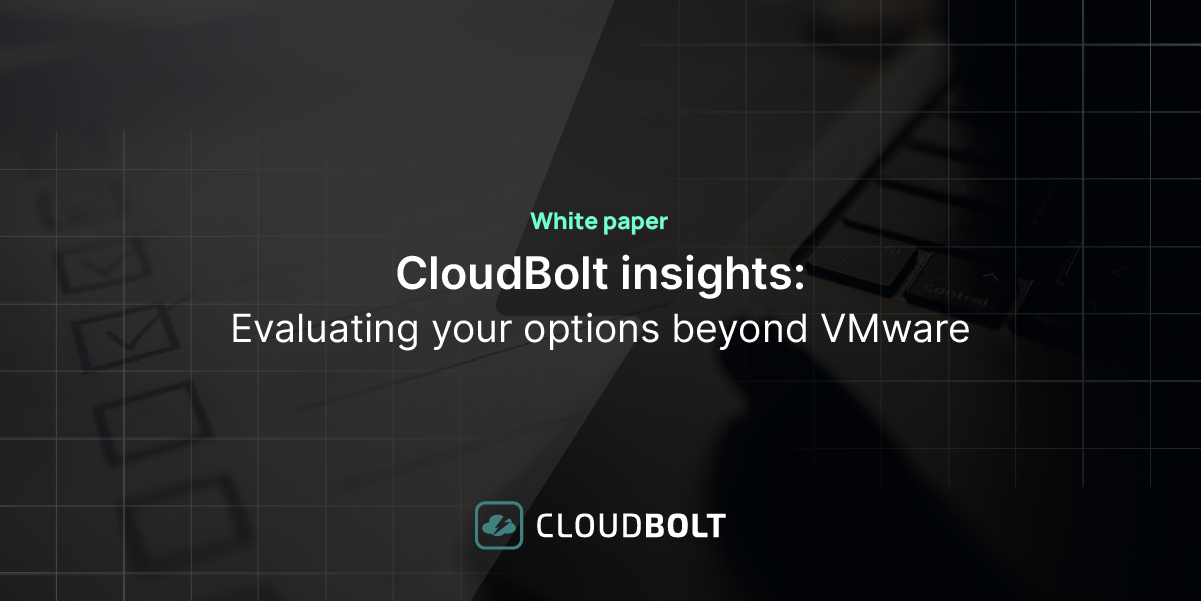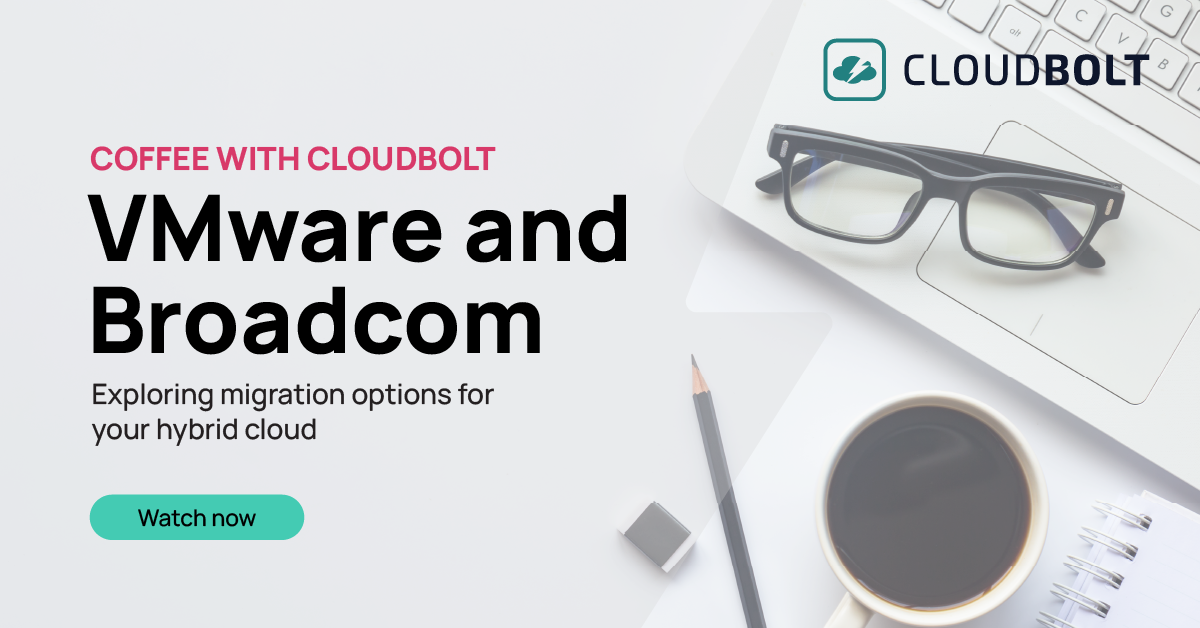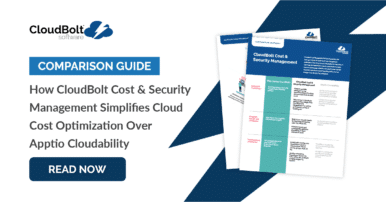Bridging the Gap: Simplifying Hybrid Cloud Management for Operational Agility

While public cloud infrastructure is a staple of modern businesses, migrating all applications to a single public cloud provider — or to a public cloud at all — can pose distinct challenges and risks.
As a result, many organizations continue to host their applications in on-premises servers or a private cloud despite the advantages of public cloud infrastructure.
A hybrid cloud architecture approach can combine the best of both worlds, enabling the benefits of public cloud infrastructure while limiting the challenges and risks of relying exclusively on a single public cloud provider. However, effective hybrid cloud management requires a unique combination of strategy and tactics to address the additional complexity associated with the architecture.
This article will review hybrid cloud management in detail, including key challenges, simplifying management, and how multi-cloud management platforms can help organizations get the most out of their hybrid cloud infrastructure.
Summary of key hybrid cloud management concepts
The table below summarizes the hybrid cloud management concepts this article will explore in more detail.
| Concept | Pros | Cons |
|---|---|---|
| Containerization | Provides a lightweight and isolated application environment. | Offers little resource management, cluster configuration, or scheduling when used in isolation. |
| Software-defined networking | Allows programmable network configurations to manage the connectivity between public and private clouds. | Can be challenging to implement without disruption on anything other than a green-field deployment. |
| Edge computing | Brings resources closer to the data source, reducing latency and enabling real-time data processing and analysis. | Potentially makes management even more complex through additional hardware and networking requirements. |
| Hyperconverged infrastructure | Compute, networking, and storage are contained within a single appliance with a single management suite. | Vendor locking can be an issue, as can restrictive scaling options. |
What is hybrid cloud infrastructure?
Fundamentally, hybrid cloud infrastructure is defined as a computing environment that combines more than one public or private cloud infrastructure to provide a complete environment. A hybrid cloud approach takes advantage of public and private cloud benefits while removing some constraints of exclusively using one cloud service model.
“Suddenly, I can offer an engineer productivity! Where it used to take them roughly 40 hours to build up a system to overlay their tools, I deliver all of that in minutes with CloudBolt.”
Comparing public vs. private cloud
To understand how a hybrid cloud can deliver business value, let’s take a step back and compare public and private clouds. The table below compares these two popular cloud computing models to help frame how a hybrid model can help organizations balance competing requirements and tradeoffs.
| Public cloud | Private cloud | |
|---|---|---|
| Scalability | Easy to rapidly scale resources up or down at a pace based on demand. | Available resources are typically static over longer periods. Reaction to changes in demand is slow. |
| Pricing | A pay-as-you-go model eliminates the need for upfront capital expenditure on hardware that may only be partially utilized at times. Still, billing can be irregular and unexpected if not tightly controlled. | Initial hardware purchase requires a relatively large expenditure and a struggle to balance between having enough resources available for periods of high demand and not having excessive amounts of hardware underutilized at other times. However, operational costs are often lower and more predictable after the initial investment. |
| Location | A vast network of data centers spread across multiple geographic regions enables application deployments closer to the end-users, providing lower latency performance at the potential cost of loss of data sovereignty. | Having all resources held in a specific geographic area can be an advantage from a data sovereignty perspective but can lead to an increased risk of downtime and data loss due to natural disasters, power outages, or other localized disruptions.Ultra-low latency is possible if the private cloud is placed close to users, but higher latency occurs for users not physically close to the resources. |
| Managed services | Managed services offload infrastructure management and maintenance burden, but customization options are often restricted while the cloud provider dictates release and retirement cycles. | Although additional management is needed for ongoing maintenance, monitoring, and upgrades to ensure performance, security, and compatibility with evolving technologies, greater freedom and customization options are available. |
| Security | Although physical security is likely to be considered ‘best in class’, concerns over shared tenancy can be an issue | Direct control over the infrastructure allows the implementation of specific security measures and access controls, which can be essential for compliance and regulatory purposes. |
Clearly, there is a tradeoff between simplicity and scalability (public cloud) vs. control and flexibility (private cloud). Hybrid cloud enables organizations to fine tune their choices to find a balanced “best of both worlds” approach for their unique needs.
A typical hybrid cloud architecture may deploy some workloads and data into a private cloud for enhanced control and security, while other workloads are deployed into a public cloud to utilize the additional scalability and cost efficiency.
Characteristics of hybrid cloud architecture
Although some, arguably mistakenly, refer to any environment that uses any combination of on-premises infrastructure and one or more public cloud services as a hybrid cloud, to be considered a genuinely hybrid cloud architecture, an environment should display some, if not all, of the following characteristics:
- Integration: Data and application portability allow workloads to move between cloud environments as needed.
- Resource bursting: When additional resources are required during peak periods, the workload can be offloaded to an alternate cloud platform, ensuring optimal performance.
- Data placement and management: Sensitive data can be kept in a private cloud for enhanced security, while non-sensitive data is stored in the public cloud for cost savings and scalability benefits.
- Hybrid networking: Secure connections between cloud environments enable seamless data transfer between different cloud platforms.
- Disaster recovery and business continuity: Applications and data can be replicated and backed up across multiple cloud platforms, ensuring high availability and minimizing the risk of data loss or downtime.

“Developers are overwhelmed by the amount of security configurations that are needed to secure the cloud…they no longer have to be security experts or worry about creating vulnerabilities for the organization.”
A real-world example of this is a web application that utilizes public cloud infrastructure to serve a front-end from multiple geographic locations, reducing latency for end users and providing resource bursting when needed, while hosting back-end data storage in a private cloud infrastructure for data sovereignty or regulatory compliance purposes, with a secure network in place between the two. The public cloud service may even be a backup location for some of the data in the private cloud if regulations allow it.
Hybrid cloud complexities
Managing an environment with any of the above characteristics is a challenging task. Each public cloud provider uses their own web-based GUI, APIs, and CLI, while a private cloud may require more than one if multiple platforms are involved.
Even Terraform, which claims to “provision and manage resources in any cloud or data center as code”, requires different code blocks and syntax to provision a similar infrastructure across AWS, Azure, GCP and any variety of private cloud platforms.
This can lead many enterprises with various cloud tech stacks and strategies as each public or private cloud becomes siloed due to the specific skills required to manage them. Unifying them is hard even when different clouds are used to host distinct products or services, and that’s before you start to consider spreading a single product across multiple cloud providers to create a true hybrid cloud solution.
Couple these complexities with the less technical, but no less critical, considerations of data sovereignty, cost optimization, and user requirements, and It becomes clear how challenging managing a hybrid cloud environment can be without specialized tools and platforms to monitor, orchestrate, and automate the deployment and management of resources across public and private cloud environments.
Simplifying hybrid cloud management
Thankfully, tooling is available to help simplify the management of a hybrid cloud infrastructure.
Containerization
Containers provide a lightweight and isolated application environment but offer little resource management, cluster configuration, or scheduling when used in isolation. Kubernetes, an orchestration tool, simplifies the deployment, scaling, and management of containerized applications, which is crucial for building portable and scalable applications that run seamlessly across different cloud environments in a hybrid setup.
Software-defined networking
Software-defined networking allows flexible and programmable network configurations to dynamically manage the connectivity between public and private clouds, optimizing traffic flow and ensuring secure cross-platform communication. This makes managing connectivity across clouds a less complex task.

Edge computing brings resources closer to the data source, reducing latency and enabling real-time data processing and analysis. This allows organizations to distribute workloads and data processing between the edge and the cloud, optimizing performance while ensuring data privacy and compliance but, historically, has made management even more complex.
Several public cloud providers now offer edge computing as a service, providing a familiar public cloud interface to manage resources in your own choice of physical location and the ability to manage this infrastructure a little differently from your other public cloud resources.
“We were surprised at how few vendors offer both comprehensive infrastructure cost management together with automation and even governance capabilities. I wanted a single solution. One vendor to work with.”
Hyperconverged infrastructure

Hyperconverged infrastructure can simplify private cloud management by providing compute, storage, and networking in a single hardware appliance with a single management suite.
Although this often reduces management complexity, cross-vendor appliance support is uncommon, which leads to vendor lock-in, and the fixed specifications of the hardware appliances can be limiting, for example, forcing the purchase of an appliance that includes additional networking and storage hardware when only additional compute is required.
Multi-cloud management platforms
Multi-cloud management platforms provide a unified interface to manage workloads, data, and networking across various cloud environments, simplifying the management of hybrid cloud deployments.

How do multi-cloud management platforms help?
Multi-cloud management platforms help to alleviate many challenges and risks typically associated with a hybrid cloud architecture by reducing the management complexity. This enables you to take advantage of the benefits of both public and private clouds without the additional management overheads.
A true multi-cloud management platform provides both technical and non-technical benefits, including:
- Consolidated cost visibility: Allows you to see the true cost of running a product or service through a single, centralized management portal, even if the infrastructure to run it spans across multiple public or private clouds.
- Configuration management: Rather than having to learn the GUI, APIs, and CLI for each cloud platform used, an engineer or administrator can use a single tool like CloudBolt to manage them all, providing a single pane of glass view of the entire environment and simplifying the process of deploying similar infrastructure to multiple clouds.
- Security management: Access control and policies are managed from a single location, giving clear visibility and control over who, or what, has access to which resources
- Regulatory compliance: With all cloud infrastructure configuration and management performed from one tool, ensuring regulatory compliance becomes much more manageable as full visibility of your posture is available for anyone who needs it.
- Easier infrastructure provisioning: It even becomes possible to empower less technical users to become more self-sufficient by using a UI that integrates with tools like Ansible and Terraform to provision their own hybrid cloud infrastructure via pre-approved templates or guard rails. Cloudbolt’s hybrid cloud management solution allows administrators to set cost compliance and technical guardrails, to help users become self-sufficient while also removing shadow IT.
- Unify your Cloud strategy: Reduce friction between private and public cloud through a unified hybrid IT approach that interconnects your public and private clouds.
- Increase operational efficiency: Automate common workflows to decrease time-to-value for your services
Conclusion
Although the public cloud provides many benefits, it also introduces new complexities. Traditionally, the only way to avoid these complexities was to continue hosting your own private cloud infrastructure or take on the additional management pains of operating a hybrid cloud.
Using a hybrid cloud management platform, such as CloudBolt, drastically reduces management overhead, allowing organizations to get the best of both the public and private cloud worlds while easing the management pains typically associated with hybrid cloud architecture.
Related Blogs

The New FinOps Paradigm: Maximizing Cloud ROI
Featuring guest presenter Tracy Woo, Principal Analyst at Forrester Research In a world where 98% of enterprises are embracing FinOps,…

VMware Migration – Evaluating your Options
Near the end of 2023, millions of users waited with abated breath to see if Broadcom’s $69 billion acquisition of…




